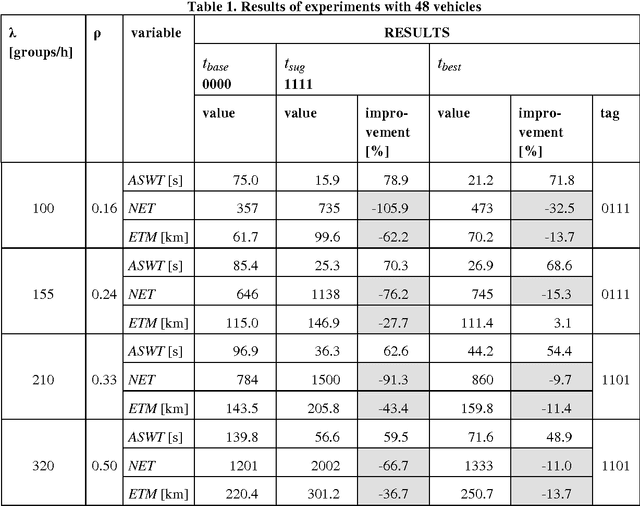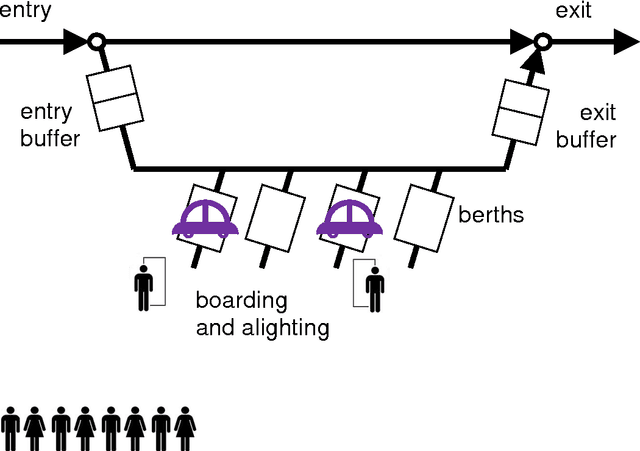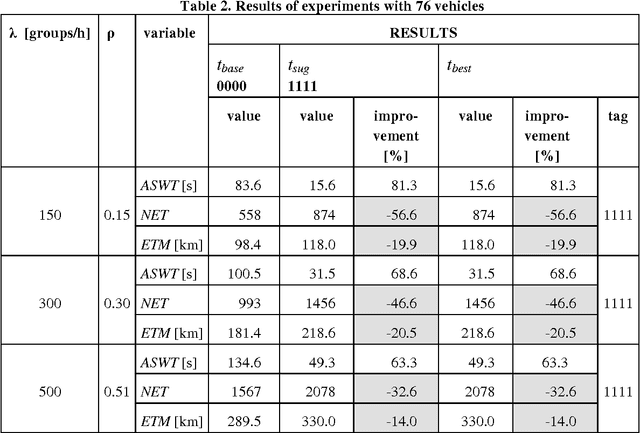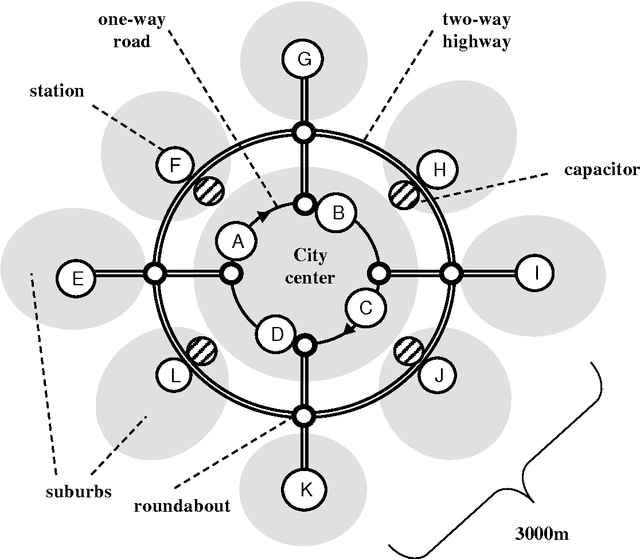Distributed algorithm for empty vehicles management in personal rapid transit (PRT) network
Paper and Code
Oct 17, 2017



In this paper, an original heuristic algorithm of empty vehicles management in personal rapid transit network is presented. The algorithm is used for the delivery of empty vehicles for waiting passengers, for balancing the distribution of empty vehicles within the network, and for providing an empty space for vehicles approaching a station. Each of these tasks involves a decision on the trip that has to be done by a selected empty vehicle from its actual location to some determined destination. The decisions are based on a multi-parameter function involving a set of factors and thresholds. An important feature of the algorithm is that it does not use any central database of passenger input (demand) and locations of free vehicles. Instead, it is based on the local exchange of data between stations: on their states and on the vehicles they expect. Therefore, it seems well-tailored for a distributed implementation. The algorithm is uniform, meaning that the same basic procedure is used for multiple tasks using a task-specific set of parameters.
 Add to Chrome
Add to Chrome Add to Firefox
Add to Firefox Add to Edge
Add to Edge